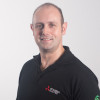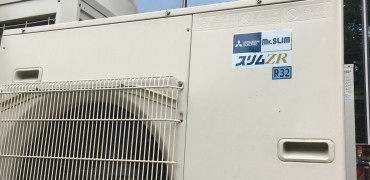As a trainer of air conditioning engineers, I have now seen hundreds of DX specialists over the past 5 years and I’m often asked questions about the future prospects for engineers in the industry.
More recently, I was asked whether DX engineers should look to diversify and retrain, given the fact that there is now more pressure on refrigerant based systems as we move through F-Gas and look towards a future of refrigerants with much lower global warming potential (GWP).
My simple answer is yes, why wouldn’t you look to add more strings to your bow and give yourself more skills?
You work in an industry that gets right into the heart of a building. You install the systems that will help provide comfort to the occupants for years to come. If you can do this with air conditioning, why can’t you do this with heating, ventilation, or chillers?
Yes, it requires a slightly different mindset and some different skills but nothing that is beyond the average DX specialist.
There is now much more focus on energy use in our buildings and other issues which go far beyond the type of refrigerant
A similar journey
To a degree, this also mirrors the way that we as a manufacturer have changed over the years.
We entered the UK air conditioning market in the late 1980s and helped revolutionise the way we heat, cool and ventilate our commercial buildings. VRF systems are now well established as a much more flexible, energy efficient and controllable alternative to the traditional chiller / boiler combination.
And we have done very well, thank you. Of course we have worked hard to innovate and continue bringing model updates and pioneering new products to the market, so that we can stay ahead of the pack. And of course we have had to deal with changes to refrigerants before.
I think it’s a bit different this time though as there is now much more focus on energy use in our buildings along with other CSR influencers, such as Well Being and BREEAM which go far beyond the type of refrigerants used.
Move to heating
The first major change we made was entering the domestic heating market and we have now manufactured Ecodan air source heat pumps in Scotland for more than a decade. This saw us talking to a new audience of heating engineers but we were also keen to help DX engineers who wanted to capitalise on the opportunities it presented to them – we still are!
Last year saw us formally enter the chiller market with the purchase of the Climaveneta and RC Group product ranges and this now sees our own DX experts selling a technology that they used to compete directly against.
What this means for us though, is that we are able to offer the right HVAC solution for any customer in almost any building.
The important word to highlight in that sentence is ‘right’ as this is the other change that I’ve noticed in the industry in the last 5-10 years.
Fit for purpose
We no longer operate in a ‘fit and forget’ market and air conditioning engineers of any merit realise that the work they do today and tomorrow will affect the performance of the equipment they install for years to come.
If you simply extend this thinking into making sure you have the skills to deliver the ‘right’ solution for your customer in any given situation, then that logically means you might want to add a heat pump for the hot water side of things, or look at whether a chiller and DX solution may be a better solution?
The other factor DX specialists need to bear in mind at the moment as well is the R32 issue – especially as it relates to VRF systems. The only R32 VRF-type solution available at the moment is our own Hybrid VRF system which launched earlier this year.
I know some DX professionals are cautious about the water side of this system but actually, we believe this is an opportunity rather than a threat and are happy to talk to installers about how we can help them realise the full potential that this unique system offers to them and their business.
To summarise
As a global manufacturer, we are working on products for the future that will be able to accommodate changes in legislation, refrigerants, technology and customer expectations. As such, we believe that there will absolutely remain a requirement for DX for a long time to come even though we don’t know what refrigerants that will involve yet.
At the end of the day though, learning how to adapt your existing HVAC skills to cover heat pumps, the water-side of a job, AHUs, or even chillers simply means that you can approach more projects with the knowledge that whatever the requirement, you have the skills to deliver the right solution.
So, why wouldn’t you? Come and talk to us if you’d like to know more.


